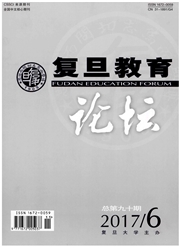

 中文摘要:
中文摘要:
地方政府作为地方高校外部治理结构中的重要利益相关者,其根本利益诉求在于财政投入与区域经济之间的相互促进与协同发展。然而,地方政府财政投入的功利性、绩效评价与问责机制的不健全削弱了该良性协同效应的建立基础。本研究引入高等教育其他外部治理主体为辅助变量,运用1999至2011年间31个省份面板数据,以空间相关性为基础,构建动态VECM模型,对两者之间的短期因果关系、长期因果关系以及强因果关系进行分析,勾勒出协同效应分区域的不同表现。研究结论如下:两者之间大多只存在单向的短期或长期因果关系,还未形成良好的协同效应;高等教育的其他外部治理主体在促进两者协同效应上发挥了协调作用;协同关系不存在全国统一模式,需根据不同区域特点制定针对性政策。
 英文摘要:
英文摘要:
As an important outside stakeholder in higher education governance, local government takes the mutual promotion and synergetic development between financial investment and regional economy as its fundamental interest. However, the utilitarian tendency of local government's financial investment and the imperfection of performance evaluation and accountability system weaken the foundation of synergy. By introducing other exterior governance subjects of higher education as instrumental variables, the authors establish a dynamic VECM model and conducts a spatial causality analysis of synergy between financial investment in regional higher education and regional economic development, based on the panel data of 31 provinces from the year 1999 to 2011.The findings are summarized as follows: Firstly, the relationship is generally featured by one-way short-term or long-term causality rather than synergy. Secondly, other investment subjects play a coordinative role in promoting the development of synergy. Thirdly, Due to the non-existence of a uniform model around the country, targeted policies based on the local conditions of different regions need to be formulated.
 同期刊论文项目
同期刊论文项目
 同项目期刊论文
同项目期刊论文
 期刊信息
期刊信息
